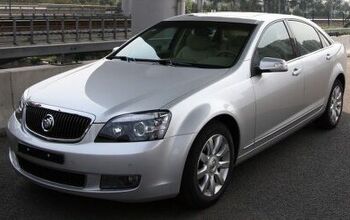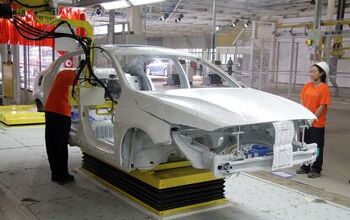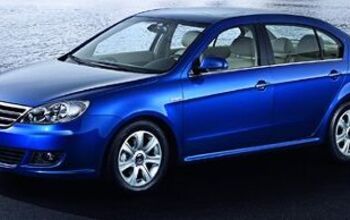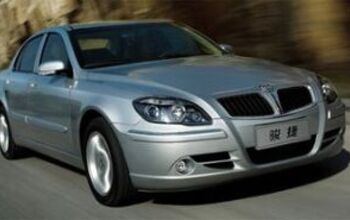China to Develop Networked Car

China has barely received wireless 3G service (a little later than the US, much later than Europe and Japan.) China has three competing 3G technologies, one based on the globally accepted WDCMA (UMTS) standard, the other two homegrown. That, and the fact that coverage is still spotty, doesn’t stop them from networking their cars. Chinese love their mobile phones and they love their cars. In Beijing, nearly one in every inhabitant has a mobile. China counts approximately 700m mobile phones, one for every two people.
Changan Auto has signed a strategic cooperation agreement this week with China Mobile to develop a smart vehicle based on 3G wireless technologies, Xinhua reports via Gasgoo.
The smart car (as it will hopefully not be called in order to avoid the ire of Daimler) will “feature a 3G wireless communications package that allows for remote surveillance, control, and management. The “3G car” occupants will be able to use GPS and navigation services, browse the web, stream audio and video, send and receive e-mail, compose documents, and even conduct small-scale video-conferences.“ The smart car will be equipped with features such as remote diagnostics, remote control, remote positioning and tracking, the Internet, and technologies which emulate an office environment.
Hopefully, the occupants will have time to watch the road.

Bertel Schmitt comes back to journalism after taking a 35 year break in advertising and marketing. He ran and owned advertising agencies in Duesseldorf, Germany, and New York City. Volkswagen A.G. was Bertel's most important corporate account. Schmitt's advertising and marketing career touched many corners of the industry with a special focus on automotive products and services. Since 2004, he lives in Japan and China with his wife <a href="http://www.tomokoandbertel.com"> Tomoko </a>. Bertel Schmitt is a founding board member of the <a href="http://www.offshoresuperseries.com"> Offshore Super Series </a>, an American offshore powerboat racing organization. He is co-owner of the racing team Typhoon.
More by Bertel Schmitt


































Comments
Join the conversation
Yes, this could help bring us back together. The days when we sat on the front porch and exchanged a few pleasant words with people walking or riding by in their open horse drawn wagons are long gone. Now we sit inside steel cocoons, sit inside our suburban homes watching TV, and sit inside cubicles at work. The only direct human communication we have is giving the finger to each other while driving. Easy communications between cars which will be controlled by satellites means we will all be equal in our progress and therefore have no reason to be angry at other drivers and instead be able to strike up friendly conversations with them.
Now this in innovation I can use. I hope the network extends to the parking lot. Can't wait for the door-ding notification app. So my car will tell me when some discourteuous lout flings their door into my fender.
Now this in innovation I can use. I hope the network extends to the parking lot. Can’t wait for the door-ding notification app. So my phone will call me when some careless lout flings their door into my fender.
This makes a huge amount of sense. We can't do it in the US because of liability - and probably because our culture is so fiercely obsessed with individualism - but China can implement this much more easily. While I love driving on twisty roads, at the track, and out in the country, I would be more than happy to cede driving authority in traffic, especially because it would mean getting to destinations faster and safer. I'm actually worried about American innovation because of our safety obsession. If we tried to implement a networked car system here, two or three deaths would spell the end of it, in spite of the fact that tens of thousands die per year under our current system. We are so bad at risk assessment; the media would trumpet deaths by computer, and people would be afraid just because they are not in control. Our obsession with safety kills our space program relative to China, because we can't see that it's worth a few deaths to go to the stars (and I'll bet there are a hundred thousand people who would be willing to be astronauts even if they only had a 50/50 chance of returning home). It's ironic that a nation of pioneers is so scared. All the great exploration took risk. Now we risk losing the spirit of exploration to our fear. Yeah, anyway, good for China. Unfortunately, we'll probably end up buying the system from them once they show how well it works...